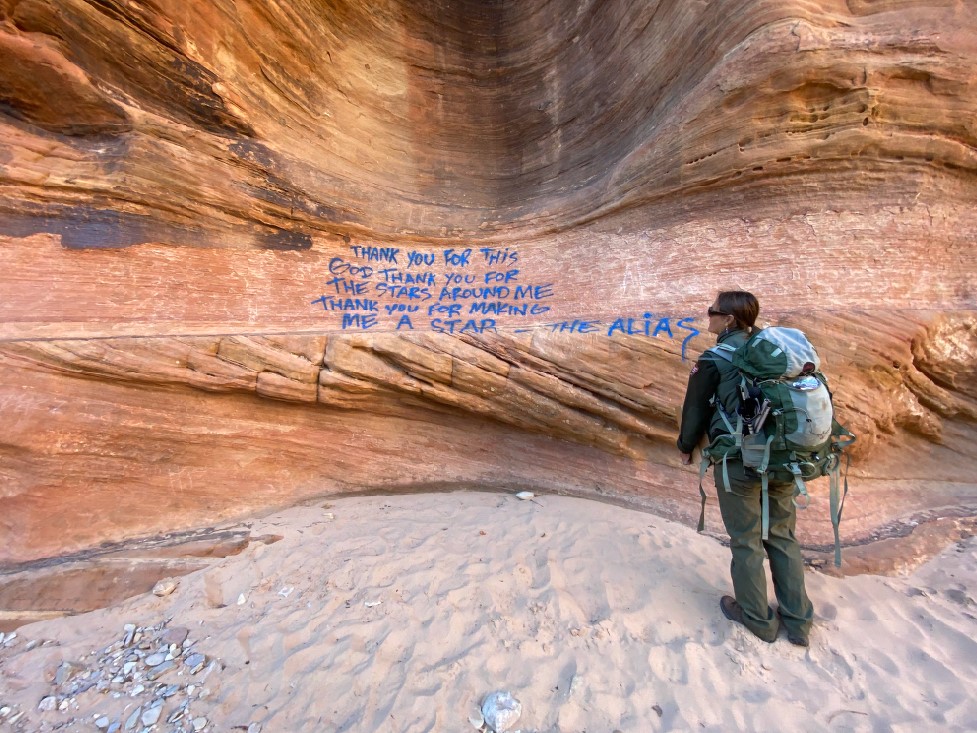News Release

NPS Photo
|
Subscribe
|
Contact: Amanda Rowland, 435-772-0160
SPRINGDALE, UT – When visiting Zion National Park there are many beautiful sights to enjoy. Recently there has been an uptick in some visitors wanting to leave their “mark” during their visit. You can help protect Zion National Park by not creating graffiti. No one comes to the park expecting to see graffiti but nearly every day, staff find words and shapes carved, drawn, painted (with mud, dirt, pigment, paint), or scratched on rocks and more recently even carved within moss. Over four million people visit Zion every year. Please allow other park visitors their opportunity for discovery by leaving rocks, plants, archaeological artifacts, and other objects as you found them. There are many ways that you can share your experience: take a photo, talk to family and friends about your visit, write a letter or postcards to someone who could not make the trip this time around, and share your experience on social media. These are all other ways to leave mark your experience instead of carving on the rocks. The goal is to leave spaces that you visit in the same or better condition than how you found them. Remember: “take only photographs and leave only footprints.”
Not only is graffiti unsightly and damaging to the surface defaced, but removing it takes time, money, and staff to do so. Depending on the area damaged and what the surface is, it can take park staff hours to remove using a variety of equipment that has to be carried to the site. Graffiti and other forms of damage to park resources are harmful and illegal. Repair of vandalized sites is costly and time consuming. Often, a damaged site can never be fully restored to its original condition.
Don't forget, graffiti is a crime. If caught, a person can be cited, with a mandatory appearance before the federal magistrate in St. George, which could lead to up to six months in jail and/or a $5,000 fine.
If you have information that could help identify those responsible for damaging park resources or facilities, please contact us via the Tip Line: (888) 653-0009. This information could help investigators. Callers don’t have to identify who they are but are asked to share what they know so rangers can prevent this damage from happening in the future.
Last updated: December 10, 2020
